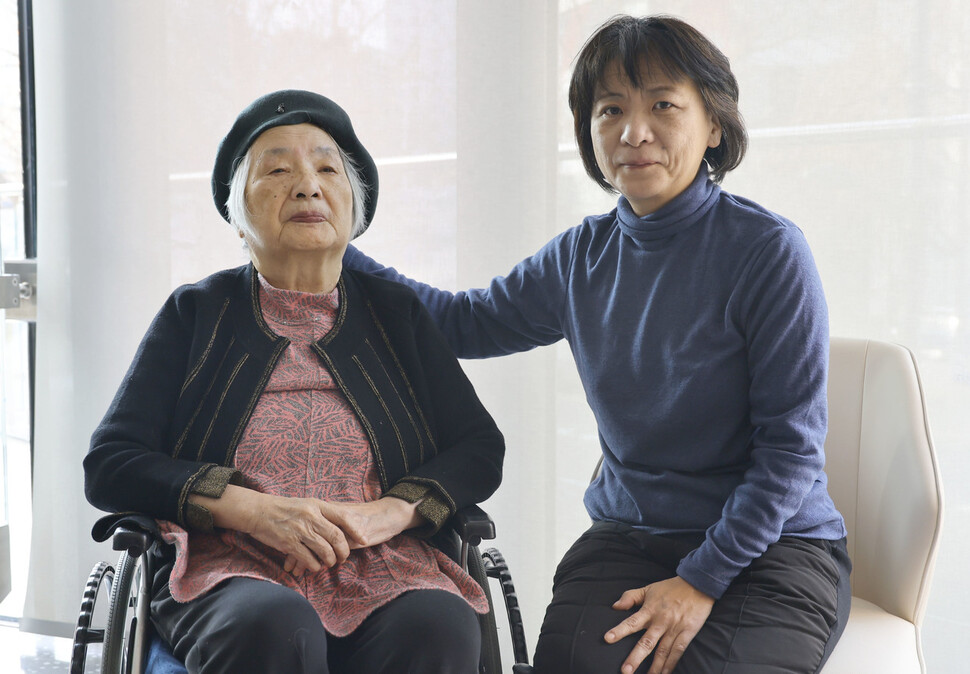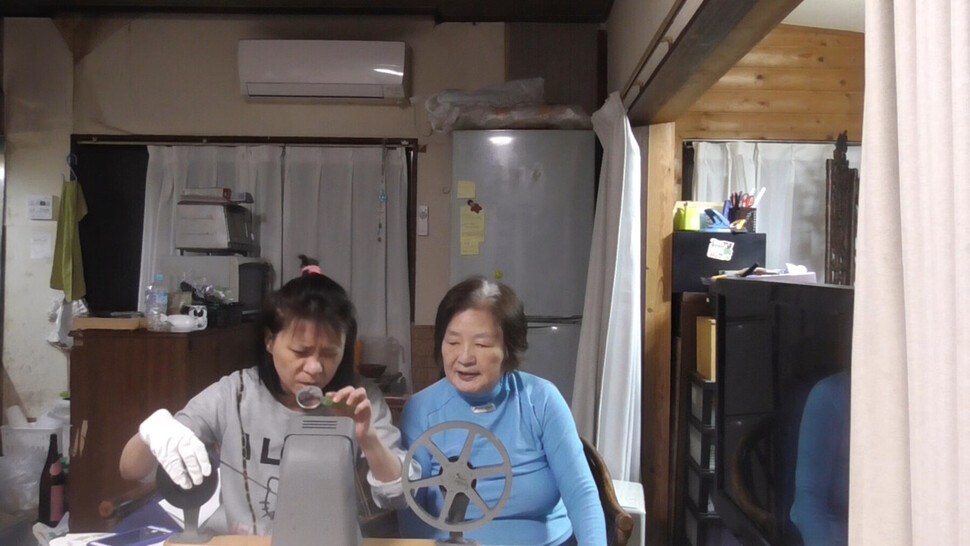Director Park Soo-nam and Park Mae-ui's archive on the forced labor of women during the Japanese colonial era
“It was often particularly loud, dominant voices who were able to make themselves heard within cinema and film history. With Relations & Resistance, we want to hone the gaze for less obvious forms of argumentation in film, the sort of small gestures that can be quiet or modest in tone,” Barbara Wurm, the section head of the forum, spoke of The Voices of The Silenced.
The Voices Of The Silenced is a documentary that archives the interviews of Koreans in Japanese colonial era who suffered as Japanese soldier’s “comfort women,” survivors of atomic bomb in Hiroshima and Nagasaki, and forced laborers. The 16mm footage of 1980s and 1990s were restored by director Park Soo-nam and her daughter.
Last December, The Hankyoreh interviewed the directors Park Soo-nam and Park Maeui who visited South Korea to attend Seoul Independent Film Festival 2023.
“Third-party reimbursement would only be disdainful,”
argues 88-year-old documentary director addressing forced mobilization.

Director Park Soo-nam (left) and Park Maeui (right) of The Voices Of The Silenced © The Hankyoreh)
“We were already famous in Japan for a long time, but I feel like a soon-to-be a 100-year-old rookie in South Korea. [laughs]”
Park Soo-nam, the director of The Voices of The Silenced, a documentary in feature competition jokingly commented. Park would be 88 this year, and her daughter Park Maeui, 55-year-old, were co-directors of the documentary, which won Mecenat Award in Busan International Film Festival. “I was mesmerized how young audiences stay after the film to ask questions. I found it hopeful that the younger generation is paying attention to the age-old issues such as the devastating forced labor of colonial Japanese era and Jeamni Massacre,” director Park Soo-nam said in an interview at a café in Gangnam District, Seoul.
Archiving the voices of South Korean victims of atomic bomb and forced labor from 1980s on camera, Park Soo-nam, the second generation Zainichi was already famous in Japan as a writer in her 20s. Her most famous work, Crime, Death, and Love, published in 1963, is a collection of letters exchanged between her and the defendant Ri Chin’u, a Zainichi who faced continuous discrimination throughout the investigation, trial, and execution in a murder case involving a girl in Komatsugawa in the late 1950s. The incident, known as the Komatsugawa incident, caused an uproar in Japanese society at the time.
Park rolled her sleeves on Zainichi issue, conversing with Ri and meeting with the families of both Ri and the girl. Her store was crowded with “customers that came in like a wave” and became a spot where “Zainichi who faced discriminations and young Japanese readers visited with no desire to leave.”

The Voice of The Silenced
Park Maeui, named after Park Soo-nam’s favorite song “Crown Prince Maui”, followed and supported her mother’s work from young, meeting comfort women, creating flyers of movies and being the cinematographer. The Voices of The Silenced, the first production to credit both mother and daughter as co-directors, couldn't have been completed without Park Maeui's strong determination to restore "100,000 feet of 16mm film and over 50 hours of audio recorded on 6mm reels."
“We had the film in storage for 30 years due to budget problem, my mother’s health complication and other issues. If this film was to be corroded, the voices of 200 and more victims in it would disappear well. So we urgently raised the budget via a crowdfunding project.” Thanks to the effort, one-fifth of this documentary was able to be digitized.
Although the mother-daughter duo has worked closely throughout their entire lives, the co-production wasn’t easy. Like the directors mentions in the documentary, “the conflict has not been an ordinary one nor is it a beautiful story.” The tension between two directors is tangible through the dialogue in the beginning of the film. “My mom was determined to faithfully deliver the voices of the victims recorded in the restored film. For me and the staffs, we wanted to include the 100-year-old history of Zainichi, linking the past and the present, with her own journey.” As the daughter and the crew wished, the documentary entails Park Soo-nam’s life, striving to let the voice of the forced laborers and survivors of the atomic bomb heard.
Though her macular degeneration blinds her and her age and diseases such as cancer and stroke weakened her, Park Soo-nam’s voice was still firm and strong. She strongly criticized the current administration’s push of “the third-party reimbursement” – a plan to compensate the victims of the forced labor by the donation from Korean business. “Japan would only belittle and mock South Korea. Serving the president of a country Omurice (a Japanese Omelette rice) which is snacks for Japanese kid, is the most obvious sign,” she pointed out. “If South Korean government fails to hold Japanese government responsible for the invasion and colonialization, it would only deteriorate the bilateral relationship.”
Park Maeui noted “the third generation Zainichi such as myself still lives in the colonial era. I have to use my Japanese name because Japanese society still gives the cold shoulder to Koreans. In particular, after prime minister Abe took office, the relationship became frosty for the last 5 years. So when we screened The Silence, the documentary about comfort women issue in 2018, there were 100 police officers mobilized, even though it was such a small screening. Only by recovering the existence of the victims hidden in history, can we protect the rights of the living. We hope this documentary will serve as the starting point.”
Written by Kim Eun-hyung, Translated by Gyeong Yeon Kim








